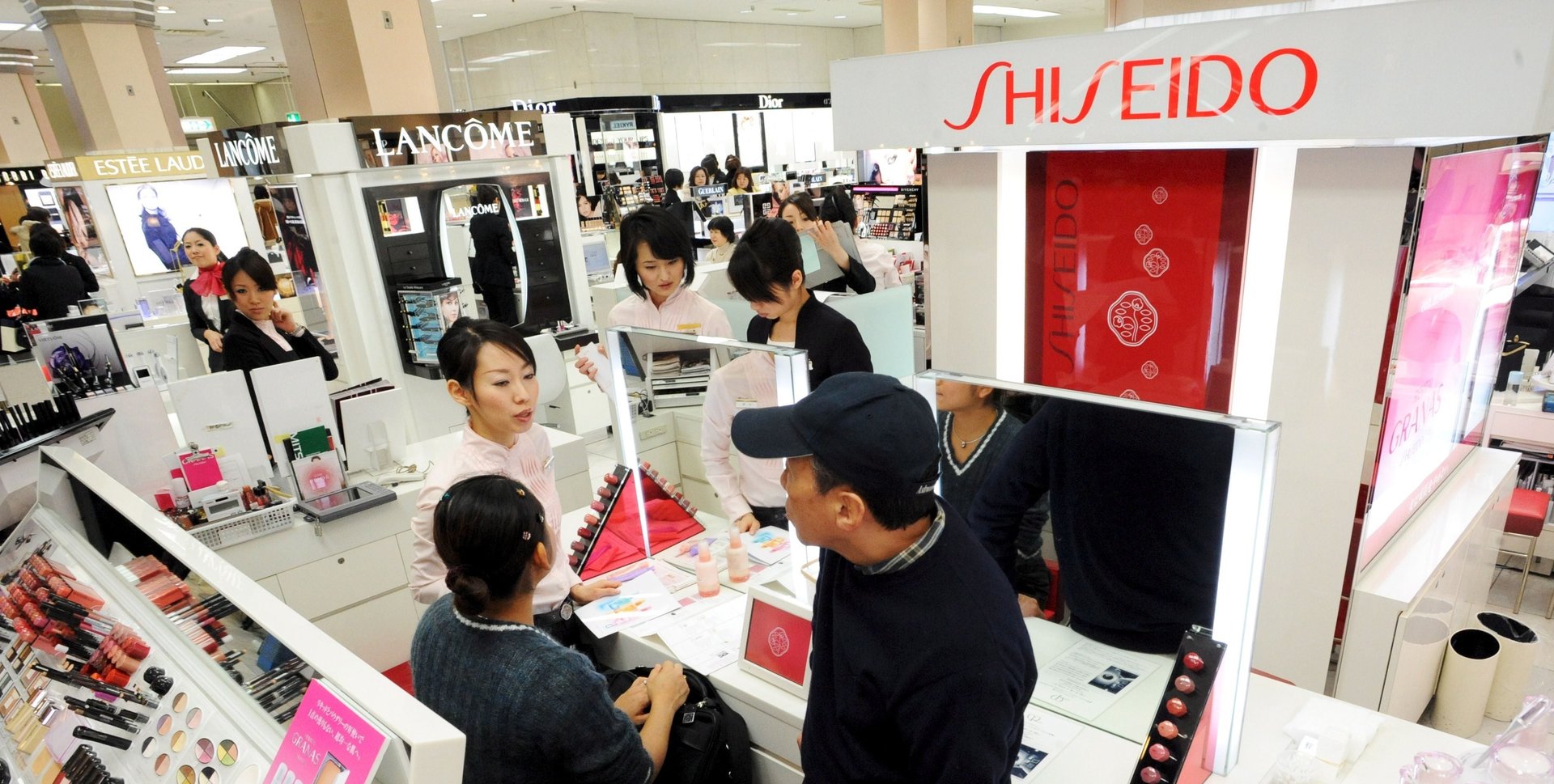More Japanese companies are embracing English in the workplace
Starting next month, cosmetics giant Shiseido becomes the latest company in Japan to adopt English as an in-house language.


Starting next month, cosmetics giant Shiseido becomes the latest company in Japan to adopt English as an in-house language.
Shiseido, which made the announcement (paywall) last year, said the decision means that internal documents will be written and meetings will be conducted in English for its roughly 2,500 employees in Japan. It’s due to be followed by car maker Honda, which said it plans to make English its official language by 2020.
Both companies are embracing the inescapable reality that their businesses—and employees—are becoming increasingly less Japanese. Shiseido now makes most of its sales from outside of Japan, and has even been cranking up production (paywall) outside of its home country in order to meet rapidly growing demand, mostly from other Asian markets like China. It established regional headquarters around the world to shift more decision-making responsibilities to foreign offices outside Tokyo. Its portfolio is also becoming more global, as Shiseido now owns brands such as bareMinerals, Nars, and Laura Mercier.
Honda has said that its decision to make English an official language will better reflect the company’s diversity as more and more of its foreign offices are now led by locals rather than Japanese expatriates.
According to (link in Japanese) Japan’s Nikkei newspaper, even smaller companies are getting in on the trend, such as automation-equipment maker IDEC, whose overseas revenue now exceed domestic sales after it acquired a French company last year—part of an ongoing push (paywall) by Japanese companies to acquire assets abroad to counter shrinking growth at home. From 2020, IDEC will require all meetings and email communication involving foreign employees to be conducted in English, and will subsidize employees wishing to sit the TOEIC English proficiency test, with those performing well eligible for awards.
The trend to elevate English at Japanese companies was pioneered by e-commerce giant Rakuten, which in 2010 introduced an English-only policy known as “Englishnization.” The decision was met with resistance and skepticism (paywall) at first, as English proficiency remains generally poor in Japan, but the company said that its policy has paid off as the average TOEIC score (paywall) among employees has steadily increased over the years. Tech giant SoftBank also incentivizes employees to brush up on their English by awarding a cash gift to those who ace the TOEIC.
Ayako Yokogawa, an expert on teaching English as a foreign language at Meiji University in Tokyo, said that Japanese job candidates are increasingly competing against not just talent at home, but against graduates from other Asian universities who are multilingual and proficient in Japanese. “Can we assume that companies faced with the challenge of competing in the global market, whether a head office of a Japanese company or a Japanese branch office, will keep hiring Japanese monolingual speakers?” she wrote.
The push to improve English skills is being mirrored at the government level too, as it tries to improve Japan’s persistently low levels (paywall) of English proficiency through reforms such as introducing mandatory English classes earlier to students. The need to improve English is all the more urgent as Tokyo is due to host the Olympics in 2020, and as the country is undergoing an unprecedented tourism boom.